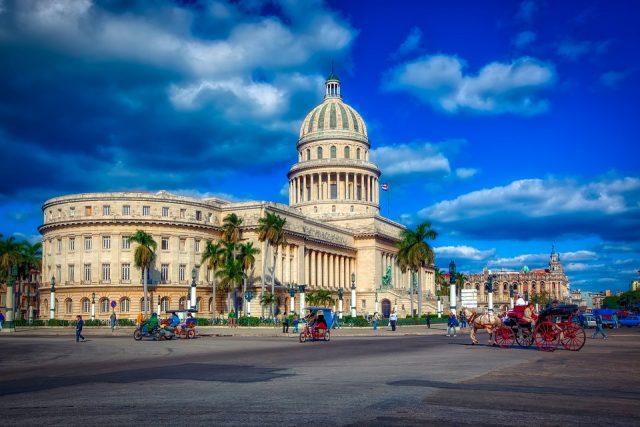Exclusive interview for PREFERENTE with Chris Emmins, co-founder of KwikChex.com, whose complaints have provoke that TripAdvisor is being investigated by the ASA.
─As TripAdvisor has removed ‘reviews you can trust’, and ASA was investigating the company mainly because of this sentence, which result do you think the investigation will have?
The phrase 'reviews you can trust' was only one element in the complaints made. TripAdvisor continue to make claims that the content on their site is entirely trustworthy. They include the phrase 'more than 50 million honest travel reviews and opinions from real travellers around the world.' given the evidence of falsehoods, it is our contention that this is a grossly misleading statement. In addition, we are challenging their statements regarding the effectiveness of their diligence. They constantly state that they take authentication very seriously when in fact they do not even verify that comments are written by genuine guests. They also state that they have effective filtering systems, when the evidence is very much to the contrary. The purpose of the independent and impartial investigations is to establish the veracity of their claims so that consumers are correctly informed about the degree of reliability TripAdvisor actually provides.
─What will be the future of TripAdvisor without ‘reviews you can trust’?
TripAdvisor's future is entirely down to them. It started with the best of intentions, but as it has grown in influence, it has attracted an increasing degree of corrupt information in the form of fake reviews. They also seem to be more interested in playing a numbers game than providing accuracy, with around 30 million of the comments on their site being so out of date as to be of no value to consumers. There are changes they can easily make that would create far greater reliability and accuracy, but to date they do not seem to be interested in doing so.
─Do you think that TripAdvisor filters are good enough for detect fraudulent reviews?
I believe i have answered the next question previously. There is overwhelming evidence that their filters are inadequate.
─Have you personally check if there are websites which trade with fake reviews? (Off the record: If yes, can you tell me the domain and I will check it)
We have found many instances of the global fake review market and make frequent reports about such businesses. They are then often closed down, but more spring up all the time and they are becoming increasingly sophisticated. The previous articles below cover this subject. We have also successfully traced individual fake posters.
─Do you think hoteliers should bonus workers whose hotels have good reviews?
I think it would be great to reward workers at businesses that attract good consumer feedback - provided there is adequate authentication - otherwise you might have thousands of workers placing fake god reviews to boost their pay!
─Do you think that big hotels and big chains, with more reviews than the little ones, are also vulnerable to fake reviews?
There is no doubt that smaller businesses are more vulnerable in every way. Less reviews, masive competition and far less financial strength make them so. Larger companies do lose substantial amounts of business to online defamation and review fraud but are normally able to ride it out because of their greater resources.
─How many of the 500.000 hotels that are registered in TripAdvisor do you estimate that have fake reviews?
Given the length of time that TA reviews cover, it seems likely that most businesses on the site will have fake or grossly distorted reviews posted on their listing at some time.
─In your view, What should do a business like TripAdvisor in order to be more efficient and trustable?
TA should carry out a range of actions if they wish to create greater reliability. Delete the millions of old reviews, have a simple checking process with the posters when concerns are raised over suspicious reviews (notify and verify) and introduce a means of enabling genuine customers to verify their status and then priortise them in the review results.
─Do you plan further actions against TripAdvisor if they continue posting fake reviews?
There are many different types of cases we are dealing with. Some of these are indisputably directly caused by TA and involve compensation to the maligned businesses. Others will fall into the category of further complaints to the relevant authorities. There is also the challenge being made regarding the definition of their status under laws such as section 230 of the communications decency act, which they have cited as providing them protection. We are also being asked to partner with law firms across the world in local jurisdiction actions. Such businesses are subverting the precious values of freedom of speech and turning it into freedom of deceit.










 Canarias: se desconvoca la huelga de hostelería en Las Palmas, pero no en Tenerife
Canarias: se desconvoca la huelga de hostelería en Las Palmas, pero no en Tenerife Castellón suma Cluj Napoca a su extraña carta de destinos
Castellón suma Cluj Napoca a su extraña carta de destinos Rusia pide a Trump el fin de las sanciones a sus aerolíneas
Rusia pide a Trump el fin de las sanciones a sus aerolíneas Primer avión pintado con tatuajes
Primer avión pintado con tatuajes Baleares: cómo cambiar todo sin hacer nada
Baleares: cómo cambiar todo sin hacer nada










 Hoteles de Tren Maya ponen tarifa que compita a los de Riviera Maya
Hoteles de Tren Maya ponen tarifa que compita a los de Riviera Maya Cuba: sufren Avianca, Copa y Wingo ocupación menor al 70%
Cuba: sufren Avianca, Copa y Wingo ocupación menor al 70% Playa del Carmen: golpe letal a un proyecto hotelero de mil cuartos
Playa del Carmen: golpe letal a un proyecto hotelero de mil cuartos Costa Maya: evitan que sargazo llegue a playas ampliando barrera
Costa Maya: evitan que sargazo llegue a playas ampliando barrera

Preferente.com Diario para profesionales del Turismo